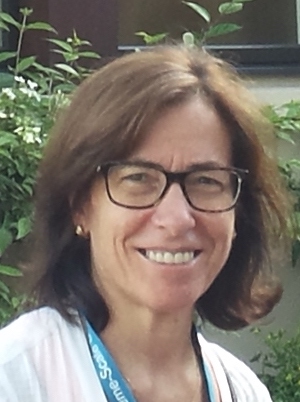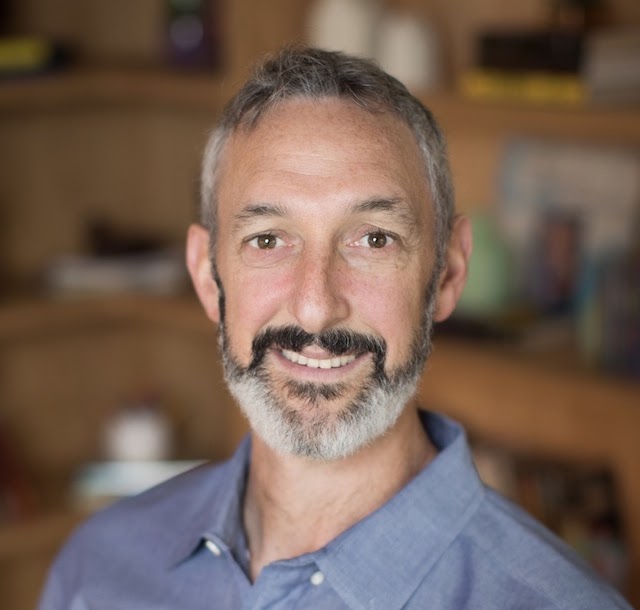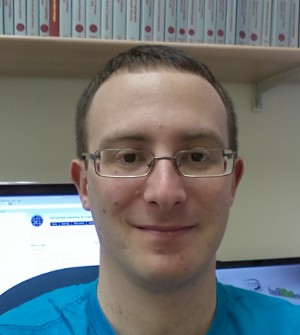Keynotes
Confirmed Keynote speakers of GECON 2021.
|
Speaker: Rosa M. Badia |
 |
|
Title: Dynamic and Intelligent Workflows with eFlows4HPC Abstract: Distributed computing infrastructures are evolving from traditional models to environments that involve sensors, edge devices, instruments, etc, and, as well, high-end computing systems such as clouds and HPC clusters. A key aspect is how to describe and develop the applications to be executed in such platforms.What is more, the use of data analytics and artificial intelligence in general is on high demand in current HPC applications. However, the methodologies to develop such workflows that integrate HPC simulations and data analytics is not well integrated. eFlows4HPC project has recently started with the goal of providing workflow software stack and an additional set of services to enable the integration of HPC simulations and modelling with big data analytics and machine learning in scientific and industrial applications. The project will demonstrate its advances through three application Pillars with high industrial and social relevance: manufacturing, climate and urgent computing for natural hazards; these applications will help to prove how the realization of forthcoming efficient HPC and data-centric applications can be developed with new workflow technologies. The talk will present the motivation, challenges and project workplan. Short Bio: Rosa M. Badia holds a PhD on Computer Science (1994) from the Technical University of Catalonia (UPC). She is the manager of the Workflows and Distributed Computing research group at the Barcelona Supercomputing Center (BSC). She is considered one of the key researchers in Parallel programming models for multicore and distributed computing due to her contribution to task-based programming models during the last 15 years. The research group focuses on PyCOMPSs/COMPSs, an parallel task-based programming distributed computing, and its application to the development of large heterogeneous workflows that combine HPC, Big Data and Machine Learning. The group is also doing research around the dislib, a parallel machine learning library parallelized with PyCOMPSs. Dr Badia has published near 200 papers in international conferences and journals in the topics of her research. She has been very active in projects funded by the European Commission in contracts with industry. She has been actively contributing to the BDEC international initiative and is a member of HiPEAC Network of Excellence. She received the Euro-Par Achievement Award 2019 for her contributions to parallel processing and the DonaTIC award, category Academia/Researcher in 2019. Rosa Badia is the IP of eFlows4HPC. |
|
|
Speaker: Nicolas Stier-Moses |
 |
|
Title: Pacing Mechanisms For Ad Auctions Abstract: Budgets play a significant role in real-world sequential auction markets such as those implemented by Internet companies. To maximize the value provided to auction participants, spending is smoothed across auctions so budgets are used for the best opportunities. Motivated by pacing mechanisms used in practice by online ad auction platforms, we discuss smoothing procedures that ensure that campaign daily budgets are consistent with maximum bids. Reinterpreting this process as a game between bidders, we introduce the notion of pacing equilibrium, and study properties such as existence, uniqueness, complexity and efficiency, both for the case of second and first price auctions. In addition, we connect these equilibria to more general notions of market equilibria, and study how compact representations of a market lead to more efficient approaches to compute approximate equilibria. Short Bio: Nicolas Stier is a Director at Facebook Core Data Science. His work leverages innovative research to drive impact to the products, infrastructure and processes at Facebook, the company. The group draws inspiration from a rich and diverse set of disciplines including Operations, Statistics, Economics, Mechanism Design, Machine Learning, Experimentation, Algorithms, and Computational Social Science (in no particular order). Between 2014 and 2017, he supported the Economics, Algorithms and Optimization team, which is one of the areas of focus of Core Data Science. Prior to joining Facebook, Nicolas was an Associate Professor at the Decision, Risk and Operations Division of Columbia Business School and at the Business School of Universidad Torcuato Di Tella. He received a Ph.D. degree from the Operations Research Center at the Massachusetts Institute of Technology. |
|
|
Speaker: Orr Dunkelman
|
 |
|
Title: How Not to Fight COVID19 Using Technology: An Illustrative Guide Abstract: The COVID-19 pandemic urged a great deal of emergency response. While many efforts were solely in the medical arena, e.g., developing vaccinations and efficient treatments, there were also some technological efforts to reduce transmission or reduce the economic costs of the pandemic. Two of these solutions, namely digital contact tracing and vaccination passports (or in some cases, green passports for people who are considered "safe" to go around), are interesting not just from ethical perspectives, but also from technological and legal aspects. In this talk we will discuss these two solutions in depth, how one can indeed use modern technology to reduce the case of infections in a pandemic. At the same time, we will discuss the impact of small design decisions on human rights, civil liberty, and trust in governments.
Short Bio: Orr is an associate professor at the Computer Science Department of the University of Haifa. After graduating from the Technion, Israel in 2006, he was a post-doctral research the Computer Security and Industrial Cryptography (COSIC) at KU Leuven (BE), Ecole Normale Superieure (FR), and Weizmann Institute (IL). Orr has served on almost 100 program committees, several times as a program chair, include the EUROCRYPT 2022 program committee. His research interests are cryptography, computer security, privacy, and biometrics. He is a co-developer of several cryptanalytic techniques, as well as a few cryptographic primitives, e.g., the KATAN/KTANTAN family of lightweight block ciphers and the HAIFA hash function framework. |
|
